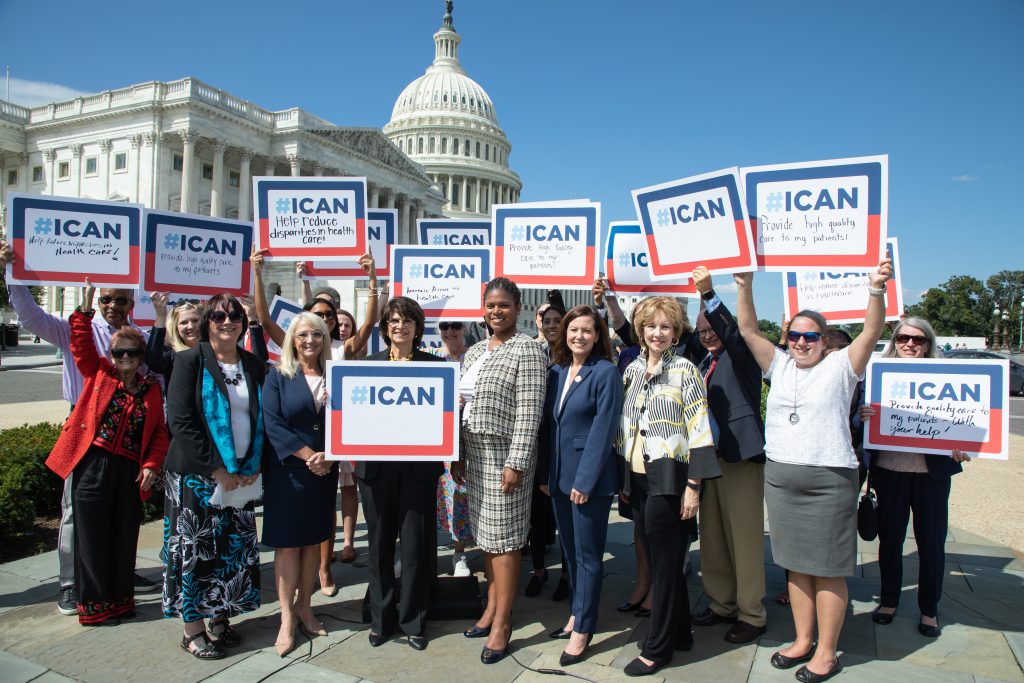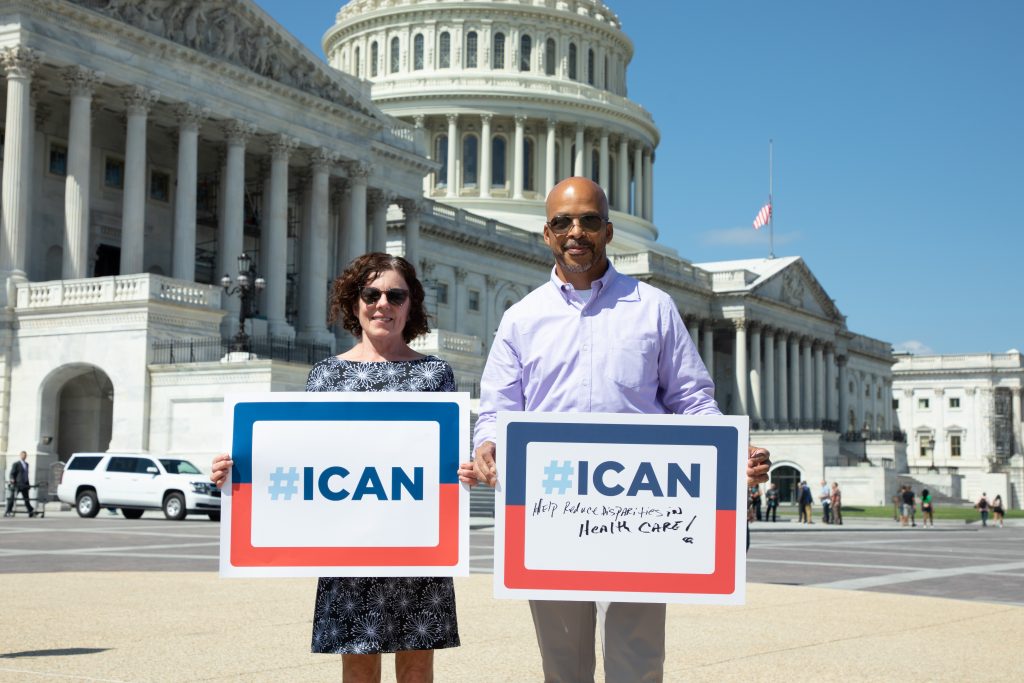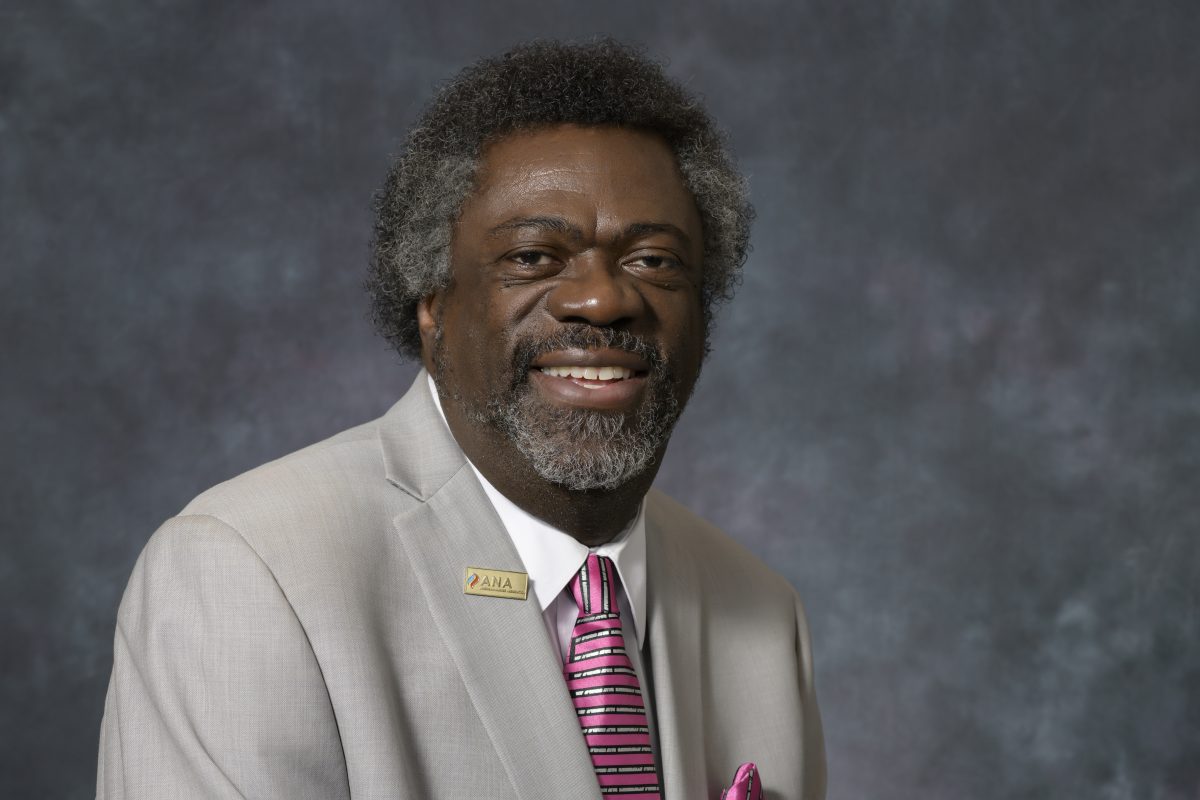Recently, the Centers for Medicare & Medicaid Services (CMS) issued a Request for Information (RFI) entitled Make Your Voice Heard: Promoting Efficiency and Equity Within CMS Programs. Through this RFI, CMS solicited feedback from stakeholders on the impact of the COVID-19 public health emergency (PHE) on the healthcare delivery system, with specific questions related to access, health equity, and workforce challenges. ANA took advantage of the opportunity to provide feedback to the agency on the nurses’ perspectives. We focused on how the COVID-19 pandemic has impacted the nation’s health care system and pointed to important areas of consideration as we all look to the future.
Representing and supporting over 4.3 million registered nurses, ANA understands the importance of elevating the nurse’s voice regarding the challenges in health care because nurses are integral to patient care. In sharing firsthand experiences from members and association priorities, ANA’s comments addressed access to health care, the nurse’s experience in providing care, advancing health equity, and assessing the impact of waivers issued in response to the PHE. A few key ANA recommendations to CMS are:
- Make permanent the waivers that allow better access to telehealth and that allow Advanced Practice Registered Nurses (APRNs) to practice at the top of their license by removing unnecessary barriers; and
- Acknowledge and support the role of the nurse in addressing health inequity and other long-standing nursing concerns about patient care.
Accessing Healthcare and the Public Health Emergency Waivers:
CMS asked to understand what challenges health care workers face that impact their wellbeing and present challenges to meet patient needs. In response, ANA shared member stories of patients who experienced barriers to care due to restrictive rules on APRN practice, such as not being able to access needed mental health care or obtain prescriptions for necessary medications.
We know that when APRNs are allowed to practice at the top of their license, more patients overcome barriers to receiving safe and cost-effective care. ANA recommended that current waivers still in place from the PHE, set now to expire in January 2023, be made permanent through CMS action, so that APRNs can continue to practice at the top of their license. These recommendations also support ANA’s legislative advocacy as we encourage lawmakers to support H.R. 8812, the Improving Care and Access to Nurses (ICAN) Act which would allow for changes in Medicare and Medicaid for APRNs to provide necessary care within their scope to better reach and support the needs of more patients.
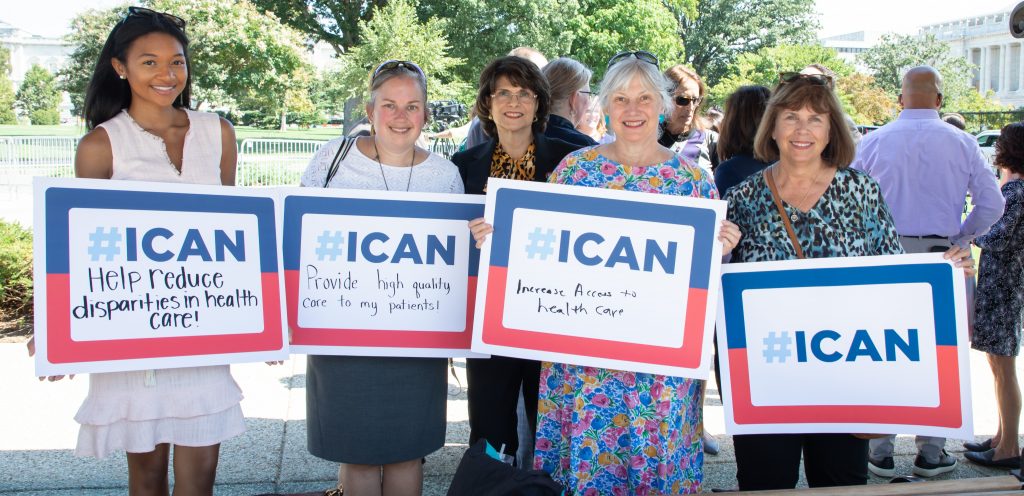
Allowing APRNs to continue to serve their communities as they have been able to through the PHE waivers offers more timely and accessible care options in underserved areas and specialties where care can be delayed. Additionally, the PHE waivers for telehealth flexibilities have allowed APRNs to better reach patients where they are needed. ANA recommended to CMS that telehealth allowances be continued and made permanent to increase accessibility to care for more patients.
Understanding Provider Experiences:
CMS also sought feedback to better understand the challenges that impact health care workers’ wellbeing and the challenges in their meeting patient needs. ANA responded by highlighting issues that were exacerbated by COVID-19. Limited resources, critical staffing shortages, and increasing levels of burnout during the ongoing pandemic are several key issues that still need to be addressed. ANA called on CMS to take concrete steps to protect nurses and their patients using all available authority and resources to address these concerns.
In sharing provider experiences, ANA made sure to promote nurse and patient wellbeing and safety issues in its comments. These experiences include:
- encountering the stigma of needing mental health care, affecting patients and providers;
- lack of meal breaks during shifts;
- unenforced safe staffing standards;
- inadequate nurse involvement in leadership decisions where nursing is impacted; and
- needing to promote nursing education to keep up with the growing need for more nurses.
In addition, ANA recommended that CMS support nurses and providers by promoting retention efforts of healthcare workers through payment and reimbursement system changes which would allow for appropriate compensation of nurses that more accurately reflect the value of nursing to the healthcare system. ANA also suggested that CMS look further into ensuring documentation requirements are appropriate, to allow nurses to spend more time with patients, and less time charting extraneous details which are nonessential to daily care tasks.
Advancing Health Equity and COVID-19 PHEs:
Continuing their work on advancing health equity, CMS asked how to better help eliminate health disparities. The agency also inquired about COVID-19 PHE waivers, asking what was helpful and what needs to be improved upon from these waivers. ANA responded by continuing to emphasize the important role that nurses perform in their daily tasks and the accessibility that APRNs practicing at the top of their license provides to many patients in underserved areas.
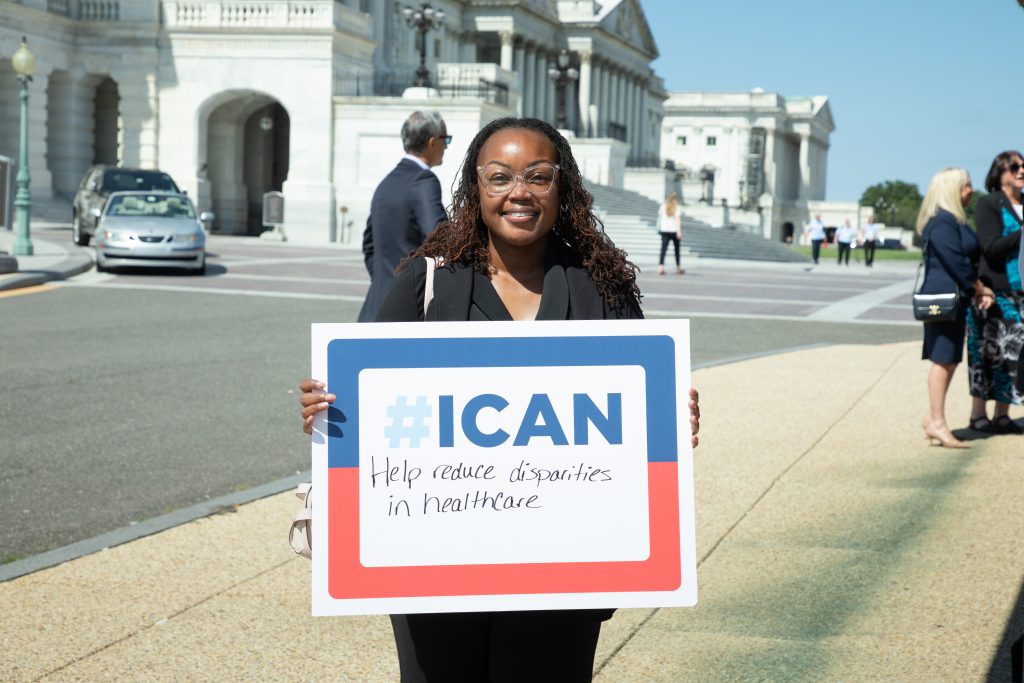
Nurses have firsthand experience witnessing health disparities and barriers to care that impact their patients’ health and wellbeing. The culturally competent care nurses provide allows them to identify and offer invaluable insight on the individualized needs of patients and more widely, on advancing health equity in their communities. Because of this, ANA encourages nurse involvement in researching, designing, and implementing measures to address health disparities and advance health equity. ANA stresses the importance of recognizing the role of the nurse in any proposed measure to advance health equity.
Allowing APRNs to practice at the top of their license, as well as the emergence of widely used telehealth appointments increases the accessibility of healthcare resources and making these emergency waivers permanent is one way CMS can immediately act to advance health equity before the waivers expire and we are forced to take a step backwards in access to high quality nursing care.
ANA continues to advocate on behalf of its members and the nursing profession with the federal agencies.
This blog was guest-authored by Samantha Karp. She is completing her Master of Science in Nursing with a focus in Nursing Leadership in Healthcare at Gonzaga University and has spent her practicum semester working with the ANA Policy and Government Affairs team, learning how nurses can be active advocates in policy.

